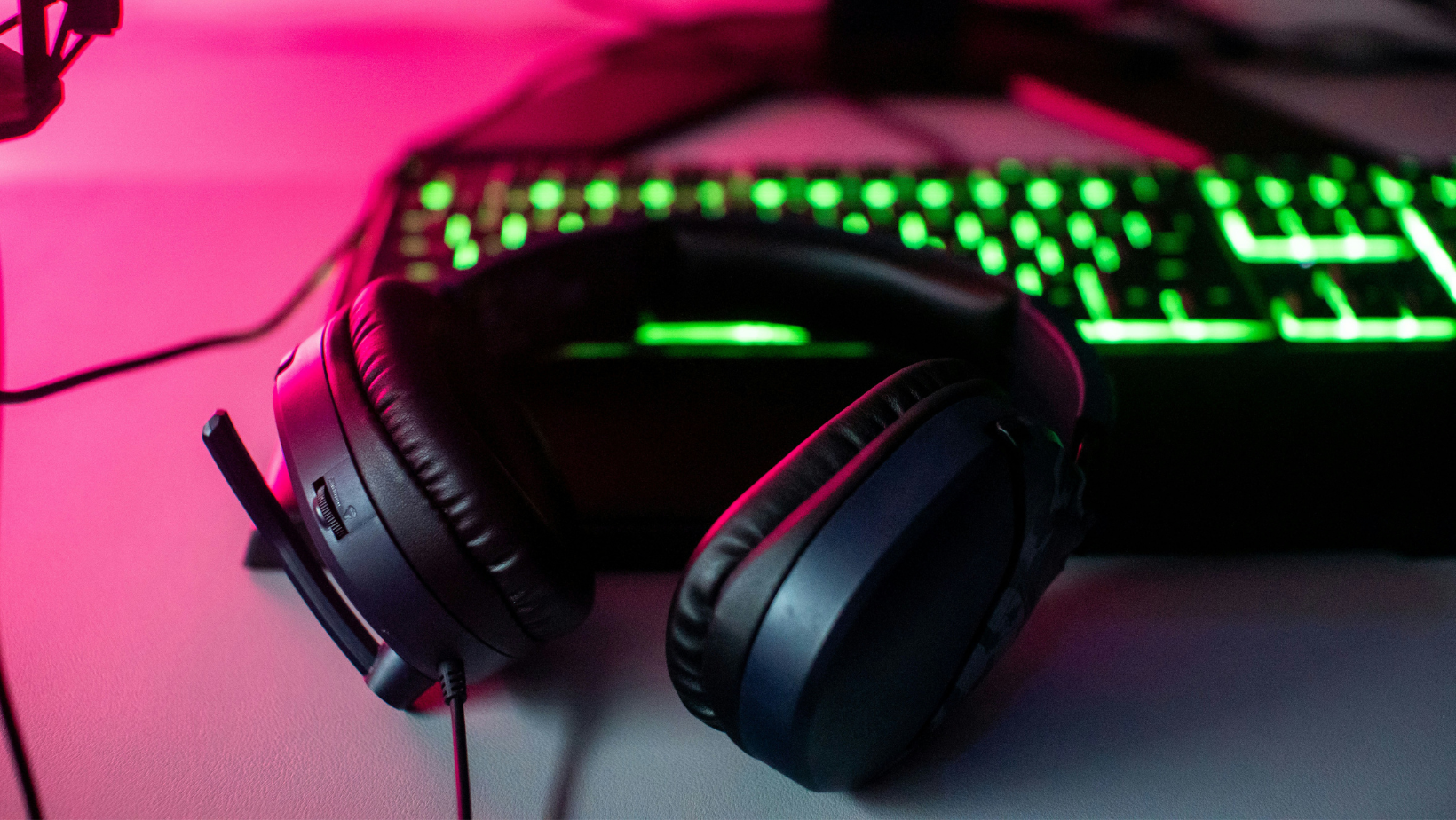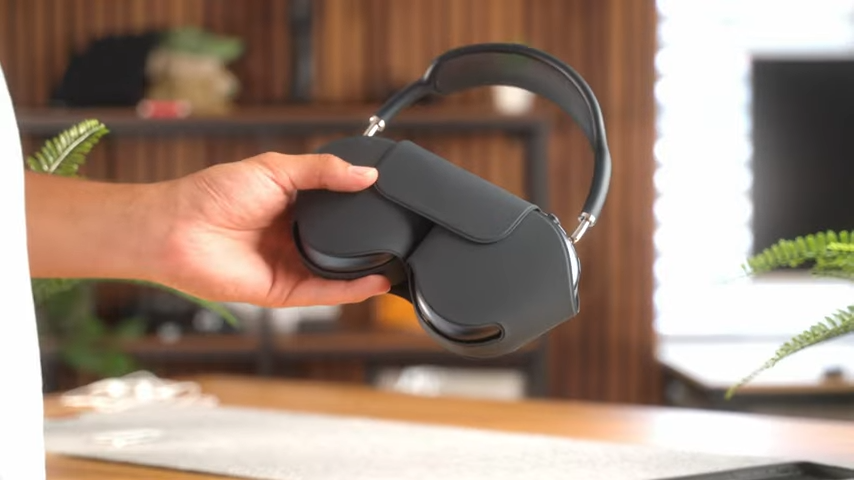Over the years, I’ve gone through more gaming headsets than I’d like to admit. Some made me feel like a pro, and others deserved to be launched straight into the bin.
So if you’re in the market for one right now, I feel your pain. The options are just ridiculous. Do you go wired or wireless? Do you spend big or keep it simple? Do you prioritize comfort over sound?

To cut through the noise (literally and figuratively), I’ve put together this roundup of the headsets that are actually worth your time and consideration. I’ve also thrown in a couple of bonus headphone options for good measure.
What to Look for in a Gaming Headset
Forget the marketing buzzwords. When you strip away the RGB lighting and “gamer aesthetics,” a good headset boils down to the following essentials.
Sound Quality
Directional audio is everything in gaming. You want to hear where shots, footsteps, or cars are coming from. Surround sound (whether virtual or hardware-driven) makes a difference here, but even good stereo can be enough if tuned properly.
Microphone Performance
We’ve all played with that teammate who sounds like they’re talking through a tin can. A good gaming headset should deliver clear comms so your squad can actually understand you, without fuzz or background noise.
Comfort
If a headset feels like a clamp or makes your ears sweat within an hour, it doesn’t matter how good it sounds. Weight, padding, and breathable ear cups can make or break a long session.
Connectivity
Wired vs wireless is still a big decision. Wired = zero delay, but cables can be a pain. Wireless has come a long way, though, with most modern gaming headsets now using low-latency 2.4GHz connections.
Battery Life
Nobody wants their headset to cut out mid-raid. With wireless headsets, I judge them less on “hours advertised” and more on “do they last through a full day’s gaming without needing a charge?”
Build Quality & Longevity
Replaceable ear pads, flexible headbands, and durable hinges are underrated features. A gaming headset isn’t a two-month throwaway (or at least it shouldn’t be), and durability matters.
My Top Picks

I’ve tested a lot of gaming headsets over the years. Here are the ones that really stand out.
Best Overall: SteelSeries Arctis Nova Pro Wireless
If money’s no object, this is the headset I’d pick. The Arctis Nova Pro Wireless nails almost everything: dual wireless connections (so you can game on PC while still taking phone calls), swappable batteries that mean you never run out of juice, and excellent comfort for long sessions. The mic is crisp, the sound is balanced, and the build feels premium.
Biggest downside? Price. At over £300/$350, it’s not cheap. But if you want one headset to rule them all, this is it.
Best Budget: HyperX Cloud II
This headset is a classic for a reason. The HyperX Cloud II has been around forever and still punches above its weight. Comfortable, durable, and with surprisingly solid sound for the price, it’s the go-to “first proper headset” for many gamers.
Biggest Downside? It’s wired, and the mic is just “okay.” But at ~£60/$70, it’s hard to complain.
Best Wireless Under £150/$150: Razer BlackShark V2 Pro
The Razer BlackShark V2 Pro is not only lightweight and stylish, but it has THX Spatial Audio that gives you great positional awareness. Wireless performance is rock-solid, and it’s still comfortable even in longer sessions.
Biggest Downside? Battery life isn’t as strong as some rivals, so you’ll be charging more often. Still, a killer mid-range pick.
Best Mic Quality: Logitech G Pro X 2 Lightspeed
This one’s for the streamers and serious team players. The G Pro X 2 Lightspeed comes with a broadcast-grade mic that makes you sound sharp and clear. Combine that with low-latency wireless and superb build quality, and it’s a beast for comms-heavy games.
Biggest Downside? Premium price, and not quite as comfy as the HyperX or Corsair options for all-day use.
Best Comfort for Long Sessions: Corsair HS80 RGB Wireless
Corsair doesn’t always get enough love, but the HS80 RGB Wireless is ridiculously comfy with its plush ear cups and lightweight build. Plus, it’s got Dolby Atmos support for immersive sound.
Biggest Downside? The iCue software is clunky. But once it’s set up, the comfort alone makes it worth it for marathon sessions.
Best Premium Option: Audeze Maxwell Wireless
This is where things get serious. The Audeze Maxwell uses planar magnetic drivers, which translates to sound quality that makes every other headset feel like a toy. Battery life is monstrous too, lasting easily around 70–80 hours.
Biggest Downside? Heavy and very expensive (~£300/$300+). But if you’re an audiophile, this is your dream headset.
Bonus Picks: Non-Gaming Headphones That Still Work for Casual Gaming
Not everyone wants (or needs) a full headset. Sometimes, you just want one pair of headphones that can handle music, travel, work calls, and a few hours of gaming in the evening. That’s where premium ANC headphones like Sony and Bose sneak into this list.
Sony WH-1000XM5
The Sony WH-1000XM5 are hands-down some of the best headphones you can buy right now. And while they’re not designed for gaming, they actually slot in quite nicely if you’re just a casual gamer. Just don’t expect them to replace a true low-latency gaming headset.
Apple AirPods Max
The AirPods Max are Apple’s take on premium over-ear headphones, and while they’re not built with gaming in mind, they bring some serious strengths to the table.

The sound quality is superb, and with Apple’s Spatial Audio, you get a surprisingly immersive experience for single-player and cinematic games.
Where they fall short is in latency, making them less ideal for fast-paced competitive gaming. Plus, the built-in mic also doesn’t hold a candle to a dedicated boom mic; fine for casual chat, but not for serious team comms.
Buyer’s Guide: How to Choose the Right Gaming Headset
Now the fun part: choosing the right gaming headset for your setup. Here’s a quick breakdown of the key factors to consider before making your purchase.
Choosing the Right Gaming Headset
The Bottom Line About Finding the Best Gaming Headset
At the end of the day, the “best” gaming headset really depends on what you’re looking for. Some people care most about sound quality and immersion, others about mic clarity for team comms, and plenty just want something comfortable and reliable for long sessions.
No matter what your preferences are, the ultimate goal for everyone is the same: a headset you can put on, forget about, and just enjoy the game.


